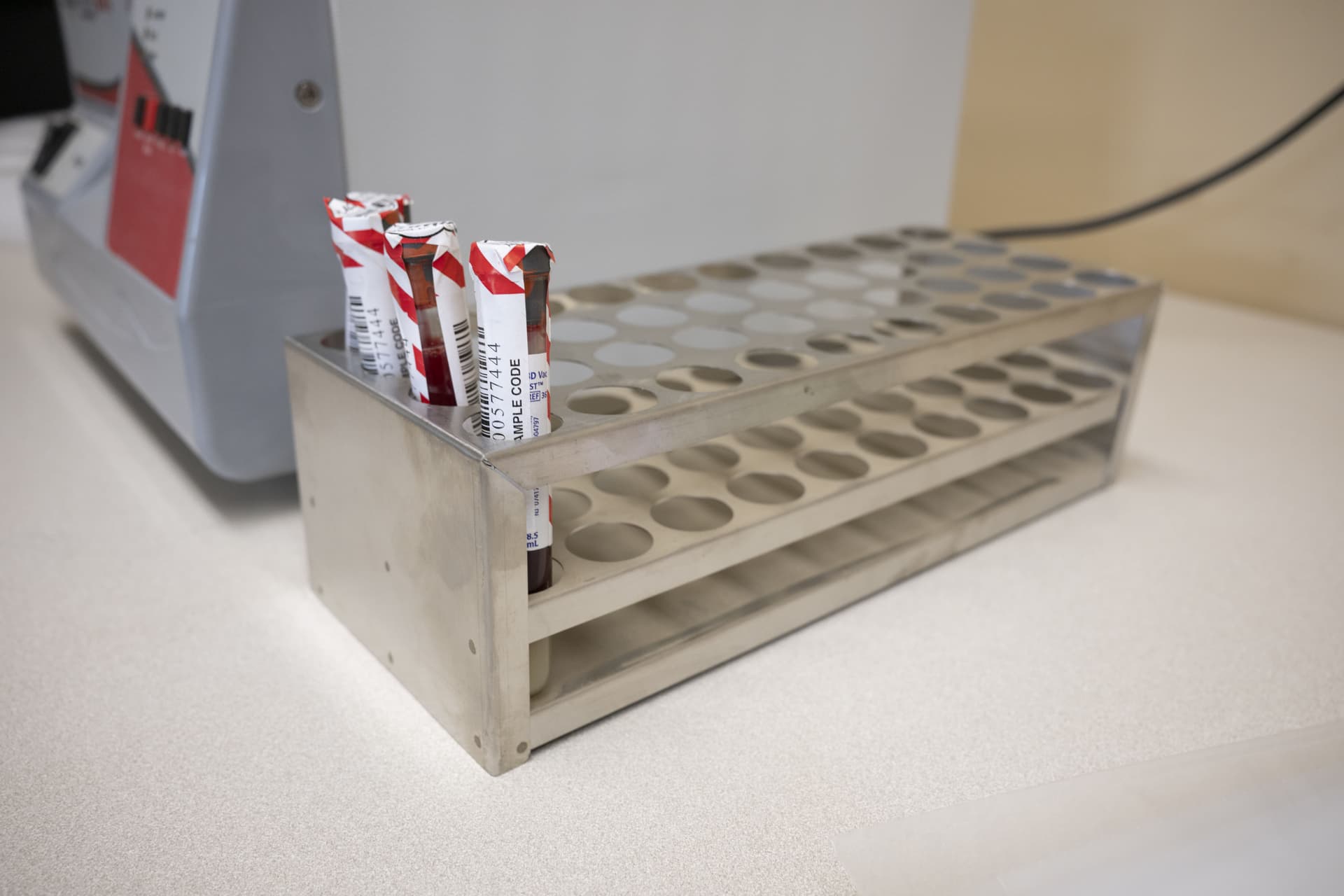HISA and HIWU Announce Proposed Updates to Testing Specifications for Metformin in Response to Recommendations from the RMTC’s Scientific Advisory Committee
As part of the Horseracing Integrity and Safety Authority’s (HISA) and Horseracing Integrity & Welfare Unit’s (HIWU) ongoing commitment to developing and enforcing rules based on current scientific and veterinary evidence, both organizations are pleased to announce today that HISA’s Anti-Doping and Medication Control (ADMC) Committee has recommended the adoption of a Minimum Reporting Level (MRL) for the Banned Substance metformin in the latest version of proposed modifications to the ADMC Program Rules, which will be circulated for public comment in the coming days. The proposed MRL is 4.0 nanograms per milliliter in blood and is based on recommendations received at HISA and HIWU’s request from the Racing Medication & Testing Consortium’s (RMTC) Scientific Advisory Committee (SAC). Pre-HISA, the Association of Racing Commissioners International’s (ARCI) Model Rules categorized metformin as a Prohibited Substance, but there was not a published testing specification for it, which meant that reported findings were determined by an individual laboratory’s Limit of Detection for the substance. As such, enforcement of metformin lacked uniformity and consistency among the states. Once HIWU assumed control of the ADMC Program, the testing specifications for metformin were harmonized based on the capabilities of Program laboratories at 0.5 nanograms per milliliter in blood and 1 nanogram per milliliter in urine. This ensured that all laboratories were testing at the same level, thus maintaining fairness for horsemen regardless of where they race. Following a series of positive test results (i.e., Adverse Analytical Findings, or AAFs) for metformin and intelligence received by HIWU that trainers were intentionally administering metformin to Covered Horses to enhance performance, HISA and HIWU asked the RMTC's SAC to conduct an independent review of the available science relating to metformin in June 2024 to determine if it was appropriate to modify the regulation of this substance. During this period, HIWU stayed the prosecution of all unresolved and new cases involving potential Presence violations (i.e., positive tests) for metformin, although there have been zero reported AAFs in 2025 while testing at 0.5 nanograms per milliliter in blood and 1 nanogram per milliliter in urine. The SAC’s investigation consisted of an initial review of the existing scientific literature followed by a three-part study performed by Dr. Heather Knych with the K.L. Maddy Equine Analytical Chemistry Laboratory at the University of California (UC), Davis School of Veterinary Medicine. The research completed by Dr. Knych and her team has resulted in three manuscripts that have all been submitted for scientific publication, the first of which, “Metformin in the Horse: Pharmacokinetics and Detection Times Using Monte Carlo Simulations," has been accepted for publication in Drug Testing and Analysis. The manuscripts describe the pharmacokinetics (i.e., how the body interacts with a substance) of metformin following a single intravenous and oral administration in the horse; the pharmacokinetics of metformin in various blood matrices, including partitioning into equine red blood cells; and the potential for detection of metformin in blood and urine samples following a horse’s exposure to metformin-contaminated urine and shavings. The SAC agreed that an MRL of 4.0 nanograms per milliliter in blood reflects exposure to metformin due to intentional administration and minimizes the possibility of a reported AAF due to inadvertent exposure. Dr. Knych’s administration study determined that metformin demonstrates an erratic elimination behavior in urine and an inconsistent relationship between urine and blood concentrations. Therefore, the SAC recommended that laboratories perform confirmatory analysis in blood only. “We are thankful to UC Davis, Dr. Knych, and her team for performing groundbreaking research on metformin. HISA and HIWU’s call for this review of metformin aligns with our mandate to utilize science when making regulatory decisions to prioritize safety, integrity, welfare, and fairness,” said HIWU Executive Director Ben Mosier. “Additionally, we appreciate our ongoing collaboration with the RMTC’s SAC to facilitate these research projects and ultimately enhance the effectiveness of the ADMC Program.” There are currently nine unresolved (and therefore stayed) Presence cases for metformin. They will continue to be stayed pending the Federal Trade Commission’s approval of the new MRL. If approved, this change will not impact cases that were resolved prior to the June 2024 announcement and involved violations of the rules and testing specifications in effect at the time. Metformin, which has no valid veterinary use in the racehorse, will remain a Banned Substance. The Presence, Use, Administration, Possession, or Trafficking of any Banned Substance is subject to a period of Ineligibility of up to two years, a fine of up to $25,000, the disqualification of race results (as applicable), and public disclosure. Horsemen are encouraged to maintain best practices for stable hygiene in their training operations to minimize the risk of inadvertent exposure to metformin and other Prohibited Substances. About the Horseracing Integrity and Safety Authority When the Horseracing Integrity and Safety Act was signed into federal law, it charged the Horseracing Integrity and Safety Authority (HISA) with drafting and enforcing uniform safety and integrity rules in Thoroughbred racing in the U.S. Overseen by the Federal Trade Commission (FTC), HISA is implementing, for the first time, a national, uniform set of rules applicable to every Thoroughbred racing participant and racetrack facility. HISA is comprised of two programs: the Racetrack Safety Program, which went into effect on July 1, 2022; and the Anti-Doping and Medication Control (ADMC) Program, which went into effect on May 22, 2023. The Racetrack Safety Program includes operational safety rules and national racetrack accreditation standards that seek to enhance equine welfare and minimize equine and jockey injury. The Program expands veterinary oversight, imposes surface maintenance and testing requirements, enhances jockey safety, regulates riding crop use, and implements voided claim rules, among other important measures. The ADMC Program includes a centralized testing and results management process and applies uniform penalties for violations efficiently and consistently across the United States. These rules and enforcement mechanisms are administered by an independent agency, the Horseracing Integrity & Welfare Unit (HIWU), established by Drug Free Sport International (DFSI). About the Horseracing Integrity & Welfare Unit The Horseracing Integrity & Welfare Unit (HIWU) was established in 2022 by Drug Free Sport International to administer the rules and enforcement mechanisms of the Horseracing Integrity and Safety Authority’s (HISA) Anti-Doping and Medication Control (ADMC) Program. The ADMC Program established a centralized testing and results management process that applies uniform penalties for violations efficiently and consistently across all American Thoroughbred racing jurisdictions that HISA governs. As the enforcement agency of the ADMC Program, HIWU oversees all testing processes, including the selection of horses to be tested, training of sample collection personnel, and chain-of-custody procedures. Additionally, HIWU is charged with industry/stakeholder education, laboratory accreditation, results management and adjudication, and investigations. For more information, please visit hiwu.org. Contact: Alexa Ravit, Director of Communications & Outreach
(816) 516-9572
aravit@hiwu.org
HISA and HIWU Announce Proposed Updates to Testing Specifications for Metformin












